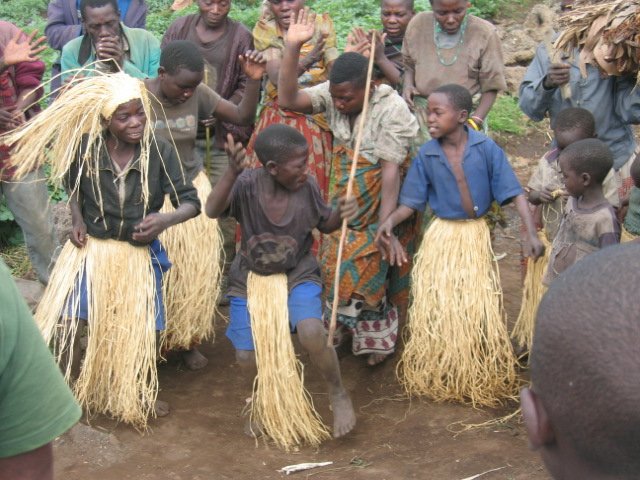
August 13, 2024
Uganda is often celebrated for its diverse wildlife and stunning landscapes, but what makes a safari in Uganda truly unforgettable is the rich cultural tapestry woven throughout the country. Uganda’s cultural experiences add depth and meaning to any safari adventure, offering travelers a unique opportunity to connect with the people, traditions, and history of this vibrant nation. From engaging with local communities to participating in traditional ceremonies, a Uganda safari is as much about the people as it is about the wildlife.
Visiting Indigenous Communities
One of the most enriching cultural experiences on a Uganda safari is the chance to visit indigenous communities. Uganda is home to over 50 distinct ethnic groups, each with its own language, customs, and way of life. Among these, the Batwa and Karamojong stand out for their unique cultural heritage.
The Batwa people, also known as the “keepers of the forest,” are one of the oldest indigenous groups in Africa. Originally forest dwellers who lived in harmony with nature, the Batwa now invite visitors to learn about their traditional way of life through guided walks and storytelling sessions. During these visits, you can witness traditional hunting techniques, herbal medicine practices, and hear tales passed down through generations.
In the northeastern part of Uganda, the Karamojong people offer another fascinating cultural encounter. Known for their cattle-herding lifestyle and distinctive dress, the Karamojong are proud of their warrior traditions and vibrant dances. A visit to a Karamojong village provides insight into their unique customs, including their intricate beadwork, music, and dance. These experiences offer a rare glimpse into a way of life that has remained largely unchanged for centuries.
Participating in Traditional Ceremonies
Uganda’s rich cultural heritage is also celebrated through a variety of traditional ceremonies and festivals. Depending on the timing of your visit, you may have the opportunity to participate in or witness these vibrant events, which provide a window into the spiritual and communal life of the Ugandan people.

One such ceremony is the “Empaako” naming ceremony, practiced by the Batooro and Banyoro people in western Uganda. This unique tradition involves giving a special pet name, known as “Empaako,” to a newborn child or a respected elder. The ceremony is a joyous occasion marked by music, dance, and feasting, and it reflects the deep sense of identity and community among these groups.
In the central region, the Baganda people celebrate the “Ekisaakaate,” a cultural camp that teaches young people traditional values, skills, and customs. While primarily a rite of passage for Baganda youth, visitors are often welcomed to observe or participate, providing an opportunity to learn about the Baganda’s rich history and the importance of cultural preservation.
Exploring Uganda’s Historic Sites and Museums
For those interested in Uganda’s history and cultural heritage, a visit to the country’s historic sites and museums is a must. Kampala, Uganda’s capital city, is home to several important cultural landmarks, including the Kasubi Tombs, a UNESCO World Heritage site. The tombs are the burial grounds for the kings of Buganda and are a sacred site for the Baganda people. A guided tour of the tombs provides insight into the royal traditions of the Baganda and the significance of the site in Ugandan history.
The Uganda Museum in Kampala is another essential stop for cultural enthusiasts. Established in 1908, it is one of the oldest museums in East Africa and houses an extensive collection of artifacts that showcase Uganda’s cultural diversity. Exhibits range from traditional musical instruments and ethnographic displays to archaeological finds that trace the country’s history back to prehistoric times.
In the western region, the Igongo Cultural Centre offers a deep dive into the culture of the Ankole people. The center includes a museum, traditional homestead, and a craft shop where visitors can purchase handmade items. The Igongo Cultural Centre also offers culinary experiences, allowing visitors to sample traditional Ankole dishes, providing a taste of the local culture.
Engaging in Community-Based Tourism
Community-based tourism initiatives in Uganda offer travelers a more immersive cultural experience by allowing them to stay with local families or participate in community projects. These initiatives are designed to promote sustainable tourism and provide direct benefits to local communities.
One such initiative is the Ruboni Community Camp in the Rwenzori Mountains. Here, visitors can stay in traditional huts and participate in activities such as basket weaving, traditional cooking classes, and guided nature walks with local guides who share their knowledge of the flora and fauna. This experience not only supports the local economy but also provides a deeper understanding of the challenges and joys of life in rural Uganda.
Another example is the Buhoma Village Walk in Bwindi Impenetrable National Park. This walk takes visitors through the local community, where they can meet traditional healers, visit a banana beer brewery, and learn about the efforts to conserve the gorillas that the park is famous for. The walk is a wonderful way to see how conservation and community life are intertwined and to understand the local perspective on wildlife protection.
A safari in Uganda is not just about the spectacular wildlife and stunning landscapes—it’s also an opportunity to immerse yourself in the rich cultural heritage of the country. Whether you’re visiting indigenous communities, participating in traditional ceremonies, exploring historic sites, or engaging in community-based tourism, Uganda offers a wealth of cultural experiences that will leave a lasting impression. These encounters provide a deeper connection to the land and its people, enriching your safari adventure and creating memories that go beyond the typical wildlife experience.



